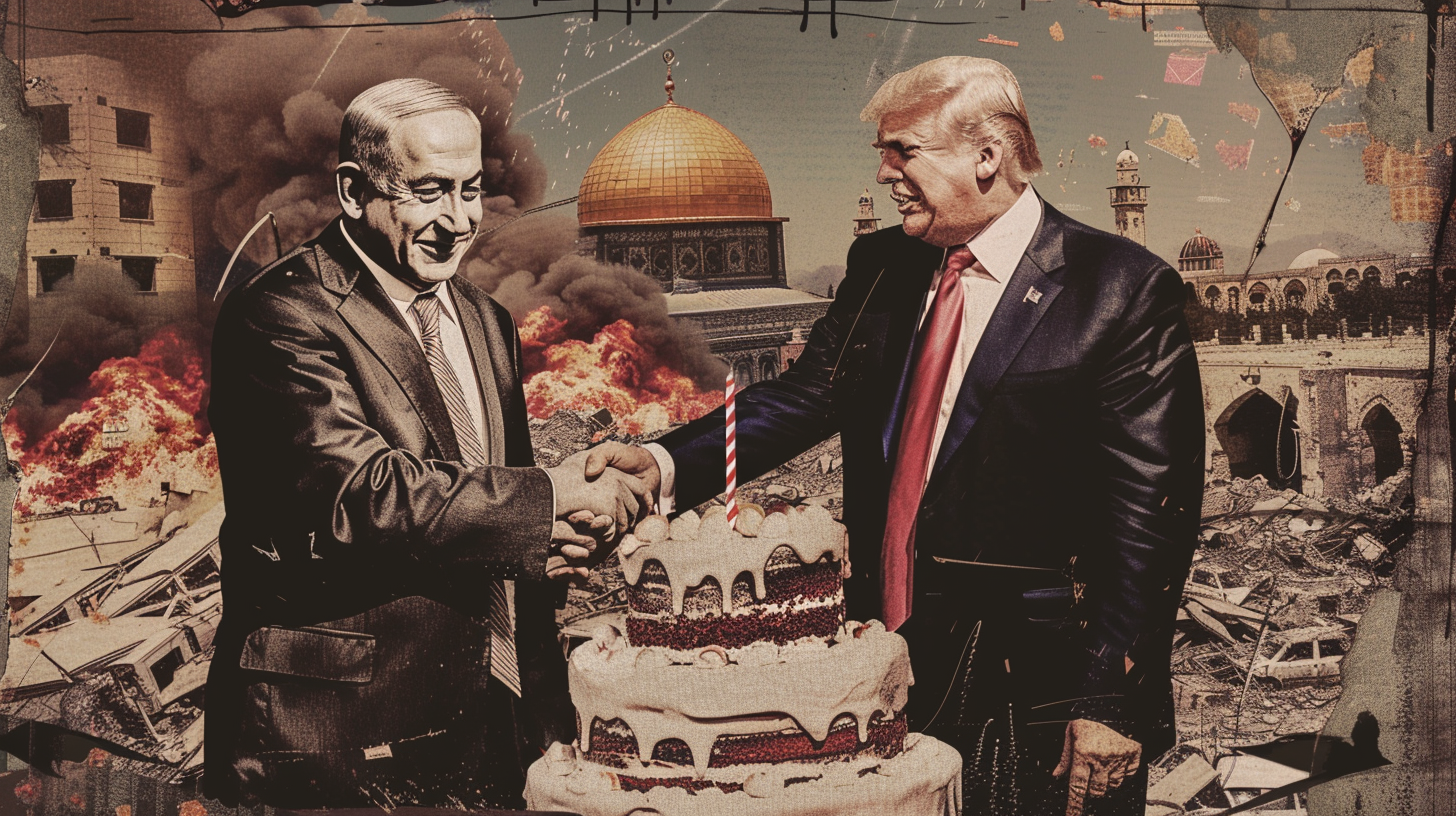The Week That Shaped the World 4 – 11 July 2025

1. Netanyahu’s Nobel Nomination for Trump
On 8 July, amid chandeliers and calculated smiles at the White House, Israeli Prime Minister Benjamin Netanyahu handed Donald Trump something no PR firm could forge: a letter to the Nobel Committee nominating him for the Peace Prize.
"He strengthens peace while we speak," Netanyahu said, praising Trump’s calls for a Gaza ceasefire. The gesture was theatrical, but the intent was strategic: to canonise Trump’s Middle East gambit before the November storm.
With a conflict still smouldering and American arms still shipping, the irony wasn’t lost on anyone — especially in Oslo.
"It’s easier to award peace when your friend is President of Israel — it makes the paperwork much simpler."
2. Elon Musk Forms 'The Party of America'
He threatened. He polled. Then he filed.
Elon Musk, serial disruptor and CEO-turned-candidate, has officially founded a new political faction: the Party of America. The announcement came on X (formerly Twitter) with over a million votes in an online referendum. Most were favourable. Some were memes.
The party’s ethos? Tech-libertarian nationalism. The enemy? Bureaucracy, taxation, and, apparently, Donald Trump. The fallout from their spat over the budget bill turned into full-blown rivalry. Musk, not one for subtlety, promised a "founding convention that’ll be more fun than Burning Man."
"Independence always sounds noble — until it turns out you're just borrowing votes from the Democrats."
3. Ukraine’s Recovery Conference Yields €10 Billion
In Rome this week, promises poured like prosecco. Over 10 billion euros were pledged by governments and institutions to aid Ukraine’s reconstruction. Italy’s Prime Minister Giorgia Meloni called it “a moral duty,” while Ursula von der Leyen unveiled plans for a dedicated European fund.
But the real undertone? Influence. As cultural sites are rebuilt and infrastructure financed, so too are loyalties. Critics whispered about soft colonisation via donations. Kyiv smiled regardless — money talks louder than memory.
"If you can’t control a strong state, fund a weak one."
4. UK to Deliver 5,000 Surface-to-Air Missiles to Ukraine
On 10 July, the UK Government signed off a 19-year financing agreement to supply 5,000 SAMs to Ukraine. Thales, the defence contractor, is the quiet beneficiary; Ukraine, the headline.
With £2.5 billion earmarked and an additional £283 million promised by 2026, Britain’s role in the conflict escalates — not just diplomatically, but industrially.
Arms for security, but also for symbolism. With Ukraine’s EU accession talks in limbo, London is doubling down on hard power.
"When empires ache, they send missiles with their nostalgia."
5. France and UK Align Nuclear Deterrents Against Russia
In a historic move, President Macron and Prime Minister Starmer agreed this week to co-ordinate their countries’ nuclear deterrents — for the first time ever.
Announced during Macron’s state visit to London, the agreement signals a tighter Franco-British axis in the shadow of Moscow. Shared patrols, strategic alignment, and even AI-enhanced missile systems are on the table.
The message is clear: NATO’s nuclear core is no longer just American.
"When alliances tighten, doctrines merge — and targets become mutual."
6. Nvidia Hits $4 Trillion Valuation
Call it silicon euphoria or AI mania — Nvidia is now the world’s first $4 trillion company. Shares soared again this week, driven by unrelenting demand for AI chips and hyperscale infrastructure.
While the Fed frets over inflation and Main Street battles rents, Wall Street’s new religion is compute. Investors see gold in every GPU. Regulators, mostly asleep at the wheel, are catching up.
Nvidia, meanwhile, builds the tools that build the future — and cashes in.
"In a world of code, silicon is king."
7. Bank of England Loosens Mortgage Rules
A quiet policy tweak with loud consequences.
On 9 July, the Bank of England lifted limits on high loan-to-income mortgage lending. The move will allow banks to issue more risk-heavy loans — especially to first-time buyers.
Critics warn of another housing bubble. The BoE says it’s about access. In truth, it’s a political shield: make housing look attainable without fixing supply.
36,000 extra buyers a year might get keys — but not security.
"If you can’t build homes, inflate demand."
8. FTSE 100 Hits Record High
On 10 July, the FTSE 100 breached new territory, powered by miners, banks, and good old-fashioned speculation.
The index jumped despite trade tensions and election jitters, as investors bet on British resilience — or at least on commodities and spreadsheets.
With bond yields low and global options limited, London remains a haven — shaky, but familiar.
"Confidence doesn’t need logic. Just liquidity."
9. Trump Imposes 50% Tariffs on Copper and Agriculture
The trade war is back — and this time, it’s orange-tinted.
President Trump declared sweeping tariffs on key commodities, including copper and agricultural imports, set to take effect 1 August. The goal? Economic pressure. The reality? Supply chain migraines.
Markets wobbled. China blinked. And in Iowa, farmers asked who exactly these wars are supposed to help.
"You don’t fix deficits by taxing the toolbox."
10. Investors Ditch 60/40 Model for Private Assets and Gold
At the Monaco Wealth Forum, the obituary was read aloud: the 60/40 portfolio is dead.
Asset managers from Zurich to Dubai are pivoting to private credit, infrastructure, and physical gold. In a world of inflation risk and political churn, predictability is passé.
Funds once built for retirement are now built for survival. Risk, it seems, is the new normal.
"When the old rules break, portfolios go primal."